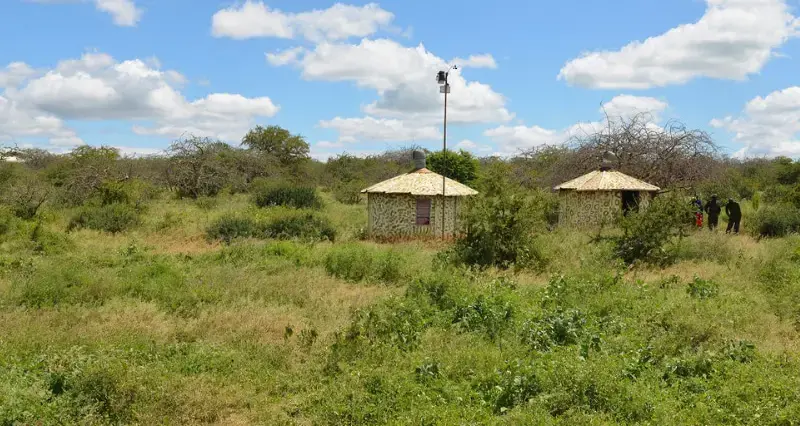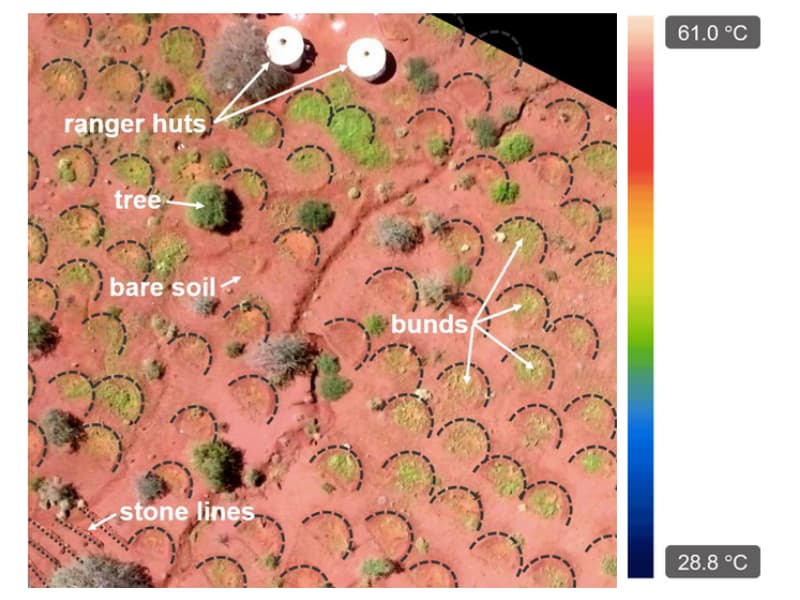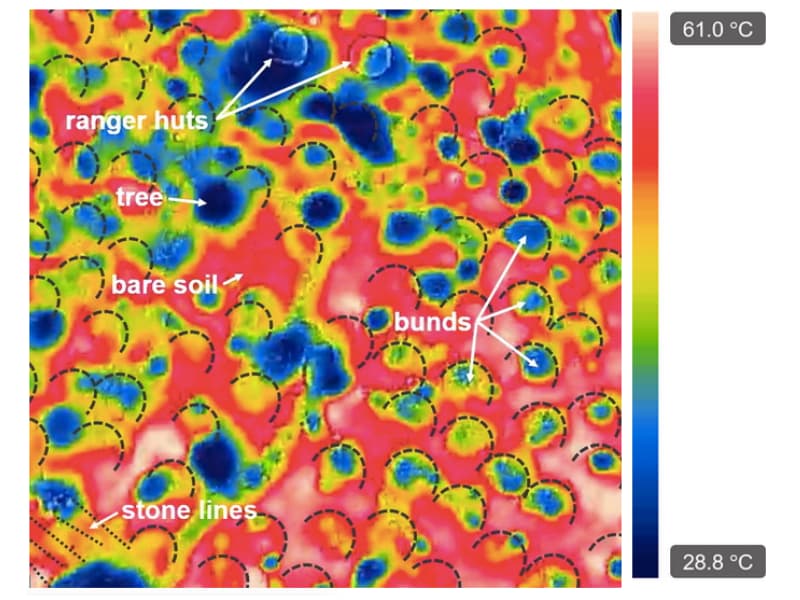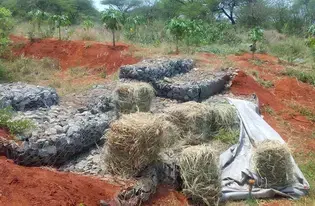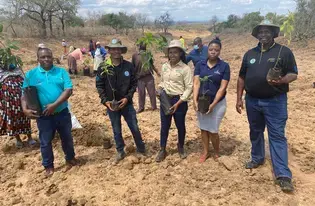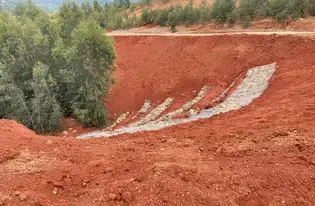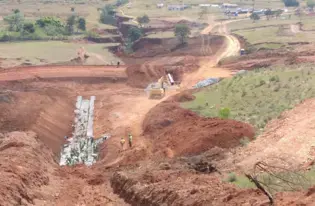Southern Kenya, along the border with Tanzania and north of Mount Kilimanjaro, is predominantly inhabited by Maasai communities, which rear their livestock across seemingly endless rangelands. However, these landscapes and their ecosystems are steadily degrading. As livestock overgrazing reduces the amount of vegetation, which traps water in the soil, across the landscape, heavy rains will quickly accumulate and wash away lawyers of healthy soil. Over time, the degradation of these landscapes will continue, turning these valuable rangelands into deserts, unless local people act to protect their land.
In these areas, Justdiggit cooperates with local partners to stop this vicious circle and give these landscapes a change to restore themselves. In the Olgulului-Ololarashi Group Ranch (OOGR), Justdiggit works with the Amboseli Conservation Programme and the Amboseli Ecosystem Trust, as well as Maasai Wildlife Conservation Trust in nearby Kuku.
In the most critical areas, where the natural vegetation has almost disappeared and soil erosion removes countless tonnes of potentially fertile soil with every storm, teams of local people are now building tens of thousands of soil bunds. These small, half-moon-shaped ditches collect rainwater and store it in the soil.
So far, local people working with Justdiggit and their partners have constructed over 145,000 soil bunds in the areas of Kuku and OOGR. This is now turning the degradation process on its head. With more water in the soil, roots systems can flourish, helping trees, grasses, and crops grow healthy and strong, even in the dry season. And the more vegetation there is, the more water it traps, accelerating the natural regeneration process and regreening more land. The temperature of the surrounding areas also cools down, helping mitigate the warming effects of climate change in vulnerable rangelands.
In less degraded areas, nature only needs a little help to recover. In Amboseli National Park, teams fenced in regenerating areas to keep out elephants and giraffes so that trees could grow in peace. Justdiggit and its partners are also working closely with local herding communities in OOGR and Kuku to set up sustainable grazing management plans. To keep cattle out as the land is restored, the teams are working with local Maasai herders to create olopololis, or designated areas where only limited grazing is allowed. To enforce these grazing rules, inclusive committees are convened by well-respected community members. These committees are trained on sustainable grazing management and decide themselves which areas are free to use for grazing, and which are not. This way, degraded rangelands get the chance to regenerate without harming the short-term economic interests of local Maasai communities.
Up until now, communities have helped restore more than 19,000 hectares of rangeland throughout the region. In the coming years, they will scale up our projects to neighbouring areas, involving new partners and improving the ecosystems on which thousands of Maasai depend.
